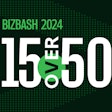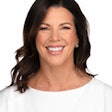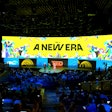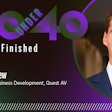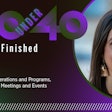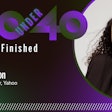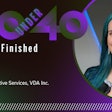Frank Ford, co-founder of
Four Day Weekend, would hate to be described as a “no” it all. Forgive the bad joke, but it’s fitting given that Four Day Weekend makes a living cracking wise. But what’s not funny is that the Fort Worth, Texas based-comedy troupe has converted their improv techniques into a business philosophy. Ford and company live by a “yes and” mantra—encouraging collaboration and cooperation—and now spread the word by hosting events and delivering inspirational keynotes
The message is simple: “Yes and” worked for Four Day Weekend and it can work for you. All it takes is an organization changing its whole mindset. While that sounds like a lot to ask, Four Day Weekend’s message is resonating. Their book, “Happy Accidents” is a best seller. Moreover, the Fort Worth, Texas-based group has been a hit speaking at the U.S. Association for Small Business and Entrepreneurs Convention and before members of Congress. And yes, they’ve met presidents, too. No wonder corporations like Southwest Airlines, Dish Network and American Express—all Four Day Weekend clients—also say “yes and.”
That’s not too bad for a group that began with three guys chipping in $700 apiece into a company they believed in. Connect conducted an impromptu interview (
not really, but we wish) with Ford, who describes why “yes and” is no laughing matter.
What does improv have to do with business?
We try to tell everyone in corporate America that if you break it down, every single person is an improviser. You have a have Larry David “Curb Your Enthusiasm” script, where you have some points you want to work toward, but the conversation is not scripted. Life should be approached that way. If you approach life as a student of life vs. a know-it-all, you come into work and find opportunities for things to do or people to meet to keep it challenging.
Shouldn’t people be saying “yes” anyway?
Some stuff in the book seems very common sense, yet we are not doing it that way. The default in the culture is to negativity. It seems counter-intuitive to approach life that way. Even we had to unprogram and reprogram our brains to get away from the “
no” default most people have.
Where did “yes and” originate?
In our world [improv comedy], there is no right or wrong. There’s just higher and lower percentage chances of working. All of our stuff worked on-stage, but would it work as business model? We started to do it with employees. We taught “yes and.” That got a really positive response from our staff. If you look at the people who work at Four Day, we’ve had very little turnover. Employees have been there 10 or 12 years because they like the culture.
What do you try to accomplish with your speaking engagements?
We introduce concepts to management and employees that you can change your culture into “yes and.” It’s simple and free to do. We’ve found because its easy and free, people actually do it. We’ve had corporate groups come back to us and say this is amazing it helped us so much.
Does Four Day Weekend’s success ever amaze you?
We say our accomplishments caught up with our BS. At some point, when you start to accomplish things, it stops being BS.
Is there one message you have for your audience?
If you are not happy and want to find something new, then do it. One of the things we say in the book is that life is all about the leap and not about the landing. You’re going to land somewhere. If you are so insecure that you won’t take the leap, you are not living. You are surviving. The “yes and” philosophy is about being willing to take any challenge.







